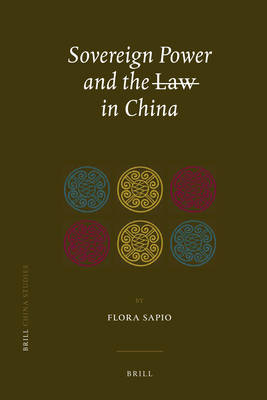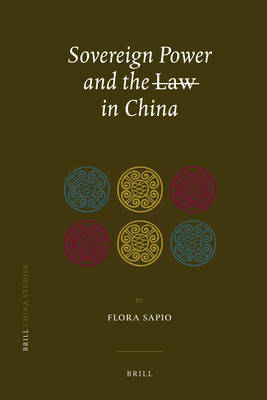
- Afhalen na 1 uur in een winkel met voorraad
- Gratis thuislevering in België vanaf € 30
- Ruim aanbod met 7 miljoen producten
- Afhalen na 1 uur in een winkel met voorraad
- Gratis thuislevering in België vanaf € 30
- Ruim aanbod met 7 miljoen producten
Zoeken
€ 297,95
+ 595 punten
Omschrijving
In China the coexistence of arbitrary detention and a transition towards a rule of law is either seen as an oxymoron, or as an aberration. This book analyses under-researched institutions and practices in China's criminal justice system, arguing that derogations from the rule of law constitute an organic component of the legal order. Hidden behind the law, there lies sovereign power, a power premised on the choice to handle certain issues through procedures that derogate from rights. This theoretically sophisticated study overcomes the current impasses in analyses of China's criminal justice. The result is an highly innovative reading of law and legality in the PRC, useful to scholars of contemporary China, mainstream political theorists, philosophers of law and policy makers.
"This important book heralds a new chapter in the comparative study of Chinese law and society...it presents and analyses a tremendous wealth of information, above all from contemporary Chinese sources...[the book] provides a new basis for deeper comparisons of the emerging Chinese 'reforming Leninist' model with the 'rule of law' and its suspension in Western countries." - Magnus Fiskesjö, Cornell University
"This important book heralds a new chapter in the comparative study of Chinese law and society...it presents and analyses a tremendous wealth of information, above all from contemporary Chinese sources...[the book] provides a new basis for deeper comparisons of the emerging Chinese 'reforming Leninist' model with the 'rule of law' and its suspension in Western countries." - Magnus Fiskesjö, Cornell University
Specificaties
Betrokkenen
- Auteur(s):
- Uitgeverij:
Inhoud
- Aantal bladzijden:
- 380
- Taal:
- Engels
- Reeks:
- Reeksnummer:
- nr. 18
Eigenschappen
- Productcode (EAN):
- 9789004182455
- Verschijningsdatum:
- 12/07/2010
- Uitvoering:
- Hardcover
- Formaat:
- Genaaid
- Afmetingen:
- 165 mm x 246 mm
- Gewicht:
- 793 g

Alleen bij Standaard Boekhandel
+ 595 punten op je klantenkaart van Standaard Boekhandel
Beoordelingen
We publiceren alleen reviews die voldoen aan de voorwaarden voor reviews. Bekijk onze voorwaarden voor reviews.








